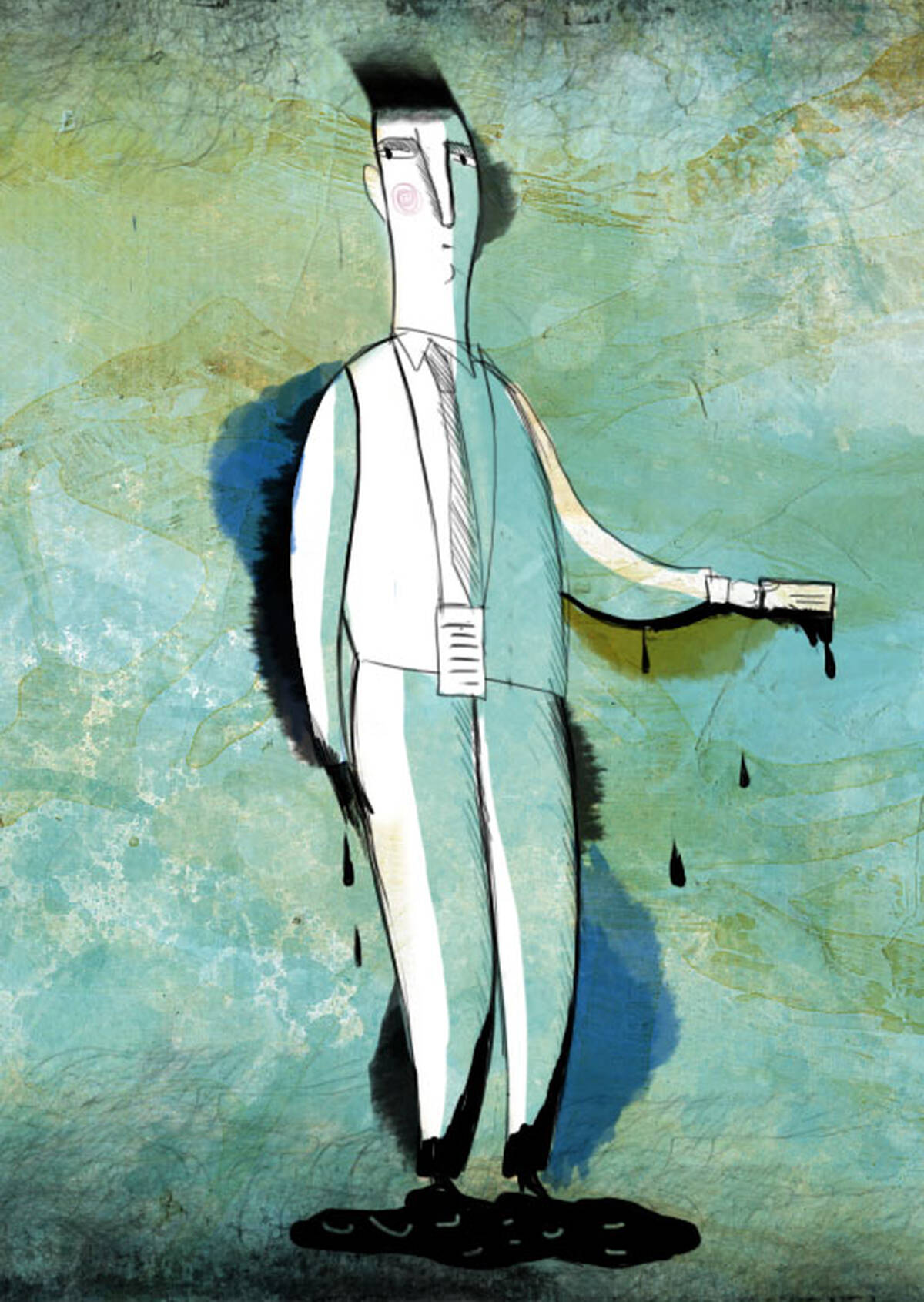Featured Faculty
Professor of Management and Organizations; Management and Organizations Department Chair

Working the room at a conference or industry lunch can leave you wanting to slather on the hand sanitizer—and not only because you have just shaken so many hands. Networking is vital for professionals across industries, from the most junior associate to the most well-established executive. But while it is a necessary part of the job, many people view it as an unpleasant one.
Maryam Kouchaki, an assistant professor of management and organizations at the Kellogg School of Management, had certainly always viewed it that way. “No matter what profession you’re in, you need to get to know people: you need colleagues, a job, social support,” she says. “But when you get to a conference and start talking to people, it can actually be really awkward. It can feel uncomfortable and inauthentic.”
“How can we help people to be effective at networking and not feel dirty about it?”
Her colleagues—Tiziana Casciaro of the University of Toronto and Francesca Gino of Harvard Business School—agreed. Might networking inflict more than just passing awkwardness? This sort of schmoozing, they suspected, might make people feel morally dirty.
When the researchers investigated the impact of networking in three laboratory studies and one survey of lawyers in a North American law firm, that is just what they found. But crucially, not everyone felt equally dirty after networking; attitudes were linked to people’s relative power.
In some sense, people network anytime they connect with someone else. But Kouchaki and her colleagues were interested in instrumental professional networking: networking focused on obtaining benefits toward one’s professional—rather than personal—goals.
Research in moral psychology suggests that people make inferences about themselves by watching their own behavior. When they see themselves engage in the seemingly selfish task of networking, their moral self-image suffers. Based on earlier studies that have shown that people think about morality in terms of cleanliness, Kouchaki and her colleagues predicted that professional networking would make people feel, quite literally, dirty.
In one study, researchers prompted a group of participants to think of a time they behaved with the intention of building a professional relationship; another group was asked to consider a time they had forged a personal connection. After describing the memory, participants then saw partial words that could either be completed with a word related to cleanliness or an unrelated word (for instance, S _ _ P could be “soap” or “step”). The researchers found that those who recalled an instance of professional networking were more likely to fill in cleansing-related words—suggesting they had dirt on their mind. In a similar experiment, participants who had just read a story about instrumental professional networking rated cleaning products more favorably than those who had read other stories. If you have ever wanted to take a long, cleansing shower after a networking event, it would seem you are not alone.
But does this tight mental link between networking and cleanliness actually impact professional careers? Next, the researchers surveyed lawyers at a North American business law firm. “We wanted to tie this to real life,” Kouchaki says.
The lawyers were asked how often they network and how it makes them feel. As expected, lawyers who felt dirtier after networking tended to do it less often—and they had lower billable hours, even when the researchers controlled for other variables like gender and office location.
Interestingly, networking did not make people higher up the firm’s food chain feel as dirty—and accordingly they did more of it. But the question remained: Does power cause people to feel cleaner while networking, or do those who do not mind networking simply move up in the ranks? A final study suggests the former, while not ruling out a role for the latter: people randomly assigned to leadership roles felt only mildly dirty after networking, regardless of whether they were reaching out professionally or personally. Power, it seems, can ease the moral messiness of using others. Or maybe schmoozing feels better when you have more resources or connections to offer in return—as people in power usually do.
Taken together, these studies show that the “ick” feeling after a long day of mixers comes from more than just impatience or exhaustion—and it can have an impact long after the conference concludes. “We show the moral consequences of instrumental networking, and how those consequences could influence people’s outcomes,” Kouchaki says.
Kouchaki and her colleagues are now investigating other factors that influence people’s negative moral feelings about networking in the hopes of mitigating them. “Networking is very important,” she says. “So how can we help people to be effective at it and not feel dirty about it?” A well-positioned network, after all, is something that can benefit everyone—perhaps especially those who enjoy it least.
Casciaro, Tiziana, Francesca Gino, and Maryam Kouchaki. Forthcoming. “The Contaminating Effects of Building Instrumental Ties: How Networking Can Make Us Feel Dirty.” Administrative Science Quarterly.